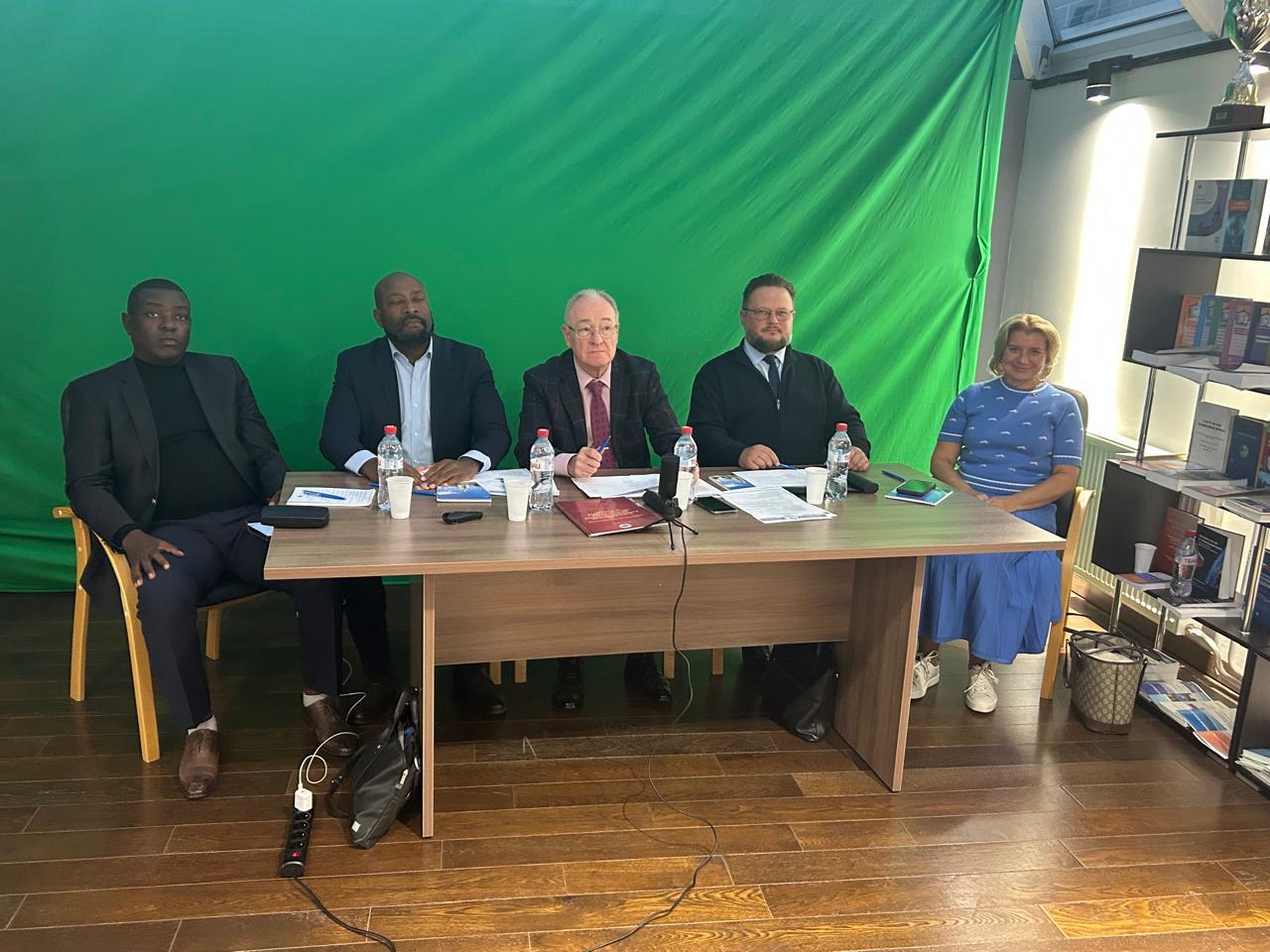Russia–Zambia Humanitarian Cooperation: Education, Culture, and Youth at the Center of Dialogue

Lusaka/Moscow
As the world undergoes rapid change, new opportunities are emerging for Russia–Africa partnerships in education, culture, food security, and youth development. On September 30, 2025, the telebridge “Russia – Republic of the Congo: New Prospects for Humanitarian Cooperation” was held at Lomonosov Moscow State University. While this dialogue centered on Congo, its themes strongly resonate with Zambia and highlight clear pathways for expanding Russia–Zambia cooperation.
One of the main topics was the growing demand for Russian education across Africa. Rossotrudnichestvo confirmed that medicine, engineering, and ICT remain the most sought-after fields. This mirrors Zambia’s reality: hundreds of Zambian students have studied in Russia (and the former USSR), many of whom now hold senior positions in government, academia, and business.
A proposal to create a database of African graduates of Russian universities is particularly relevant to Zambia. Such an initiative would strengthen alumni networks, open new avenues for professional collaboration, and ensure Zambia’s talent pool is fully integrated into future Russia–Africa projects.
The telebridge also showcased plans for a Museum of African Cultures in Moscow, opening in 2026–2027. Zambia, with its rich cultural heritage—from Lozi Kuomboka ceremonies to Bemba storytelling traditions—could play a key role in this initiative. Contributing artifacts, performances, and cultural programming would not only strengthen Zambia’s global cultural presence but also foster people-to-people diplomacy.
This cultural exchange aligns with Zambia’s ongoing partnerships with Russian universities, such as ICU’s collaborations with St. Petersburg and Volgograd institutions, where culture and education are inseparable tools of diplomacy.
Food security emerged as another urgent theme. Experts highlighted that 820 million people worldwide remain undernourished, with Sub-Saharan Africa most affected. Zambia, though a food producer, also faces challenges of climate change and agricultural sustainability. Russia–Zambia cooperation could therefore focus on fertilizer production, agricultural mechanization, and joint food security research, ensuring resilience for both nations.
The event emphasized the central role of youth in shaping the future of Africa–Russia relations. For Zambia, this is critical. With its youthful population and growing number of innovators in ICT and STEM (showcased at JETS Fairs), Zambia could benefit from joint youth exchanges, innovation hubs, and public diplomacy platforms.
The idea of establishing symbolic initiatives like the proposed “CIS Youth Belt” could be adapted to Africa—enabling Zambia’s youth leaders, students, and entrepreneurs to engage in long-term people-to-people cooperation with their Russian counterparts.
Looking ahead, the Russia–Africa Business Forum in Moscow (October 15–20, 2025) will provide opportunities for Zambian entrepreneurs, universities, and media organizations to build lasting partnerships. Initiatives such as broadcasting African stories on Russian platforms—similar to the film on Nelson Mandela aired in Congo—could be replicated with Zambian narratives, strengthening cultural identity and visibility abroad. ICU TV and other Zambian media could be natural partners in this space.
The Russia–Congo telebridge highlighted the universal pillars of humanitarian cooperation: education, culture, food security, youth, and media. For Zambia, these areas offer immense opportunities to expand its cooperation with Russia.
As Juliana Lumumba once said about Africa–Russia relations: “They have always been built on the principles of mutual respect and assistance.” By investing in youth, culture, and education, Zambia can ensure these ties evolve into a sustainable partnership for the 21st century.
